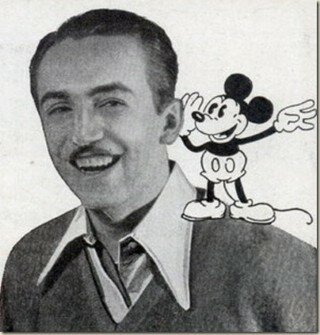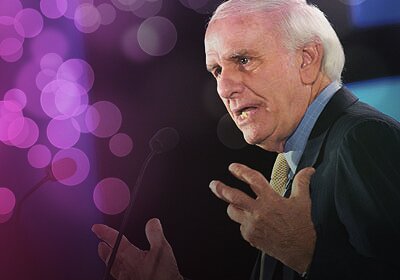 A Renaissance Woman
A Renaissance Woman
The word ‘renaissance’ is a French word meaning ‘rebirth’. Popular examples of renaissance people include the likes of Leonardo Da Vinci, Isaac Newton, Christopher Columbus and William Shakespeare.
But the term ‘renaissance’ can be applied to any one person or movement that makes a positive change within society. In today’s post I’m going to be looking at a more modern example of a renaissance woman; Maya Angelou.
Who is Maya Angelou?
Maya Angelou is not only one of the most well respected writers of her generation, but the recognized spokesperson for black women and the civil rights activism.
 Her most prominent literature works, including I Know Why the Caged Bird Sings, continue to taught in schools today and have inspired millions of readers with their tragic tackling of difficult themes such as racism, sexual abuse and equality. At the time of their publish, America was divided by segregation. But her words moved the world, and gave them the confidence required to make a change.
Her most prominent literature works, including I Know Why the Caged Bird Sings, continue to taught in schools today and have inspired millions of readers with their tragic tackling of difficult themes such as racism, sexual abuse and equality. At the time of their publish, America was divided by segregation. But her words moved the world, and gave them the confidence required to make a change.
Although Maya Angelou has reached successes that many authors, directors and actresses can only dream of, Maya Angelou’s early life and times were difficult. She faced sexual abuse, racial discrimination.
But despite all this she and it’s safe to say that Angelou has become a groundbreaking icon for the global renaissance and her influential voice will always be absorbed into the hearts of those that listen and have evolved under her word.
Forever, Angelou will be known as a poet, novelist, actress, lecturer and civil rights activist who made a difference. And that’s why I chose to write about her life and lessons today.
The Life & Times of a Caged Bird…
Angelou’s Early Life in the Nest…
On April the 4th 1928, Maya Angelou was born under the name Marguerite Ann Johnson in St. Louis, Missouri to parents Vivian and Bailey Johnson. Her mother, Vivian, was a nurse and card dealer. Her father, Bailey, was a doorman and navy dietician. Together they had two children, Marguerite and her older brother Bailey Junior.
When Angelou was three and Bailey Junior four, their parents divorced and Bailey sent his two children to Arkansas by train. It was in Arkansas that the siblings lived with their parental grandmother, Annie Henderson.
Despite the financial struggles that the Depression and Second World War brought to most African Americans at this time Annie had managed to stay well off financially and for four years took care of the children alone.
When their father returned unexpectedly in 1935, Marguerite and her brother were returned to their mother in St. Louis, a place where Angelou most experienced the racial discrimination of American people.
Aged only eight, Angelou was also submitted to sexual abuse at this time by her mother’s boyfriend, Mr. Freeman. Mr. Freeman was jailed for one day as a result of Angelou speaking out to her brother about the abuse. Within four days of his release, he had been murdered. It is guessed by one of Angelou’s distant relatives.
The effect of the discrimination and abuse inflicted on the young Angelou deeply affected the way in which she saw the world and until she was thirteen, Angelou became mute.
During her time as a mute, Angelou discovered literature with the help of family friend and teacher, Mrs. Bertha. Mrs. Bertha introduced Angelou to many prestigious artists and authors such Shakespeare, Dickens and Edgar Allen Poe. And by the time she hit adolescence she was developing the ability to speak again.
Mrs. Bertha was one of the reasons; it was hard for Angelou to move away again. But now she was a teenager her mother awaited her return.
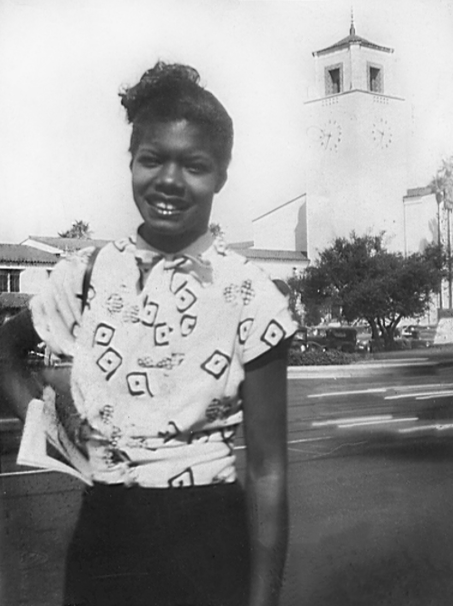 During the Second World War, Angelou attended George Washington High School. Still she developed her passion for the arts, and as a result of her dedication won a scholarship to study dance and drama at San Francisco’s Labor School where she studied dance and drama.
During the Second World War, Angelou attended George Washington High School. Still she developed her passion for the arts, and as a result of her dedication won a scholarship to study dance and drama at San Francisco’s Labor School where she studied dance and drama.
Just before graduation, Angelou dropped her schooling and worked as the first black female street card conductor in San Francisco. Three weeks after going back to school to complete her studies, aged seventeen, Angelou gave birth to her first son Guy.
As a result of being a young, single mother, Angelou was forced to move through a series of occupations and cities in attempt to support and raise her son without job training or experience.
Spreading her Wings…
In 1951 Angelou married Tosh Angelos an aspiring musician from Greece despite her mother’s disapproval of interracial relationships (a common condemnation of the time). Angelos introduced Angelou to many dancers and choreographers, and encouraged the budding dancer to take part a modern dance classes where she joined multiple modern dancers in a team that performed throughout San Francisco.
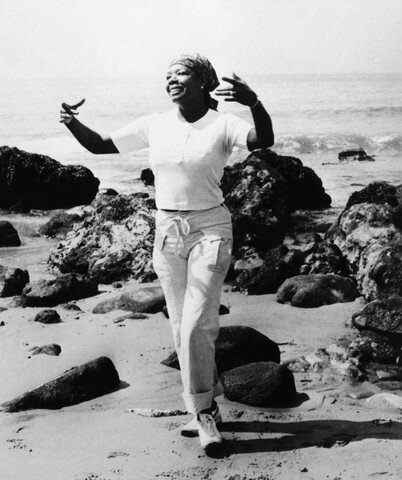 Angelou and her new family moved to New York City following her marriage to Angelos, where she could continue her study of African dance. Unfortunately for her son Guy, Angelou’s marriage ended in 1954. But despite this she went on to sing and dance professionally in San Francisco clubs and proved a popular entertainer.
Angelou and her new family moved to New York City following her marriage to Angelos, where she could continue her study of African dance. Unfortunately for her son Guy, Angelou’s marriage ended in 1954. But despite this she went on to sing and dance professionally in San Francisco clubs and proved a popular entertainer.
It was at The Purple Onion, a club of which Angelou was a regular, that she changed her professional name to Maya Angelou under the recommendation of her managers. Under this name she spent two years touring Europe in an opera, Porgy and Bess.
The tour allowed Angelou to learn the languages of every country that she visited and in 1957, Angelou recorded her first Album Miss Calypso and appeared in an off-Broadway production which later inspired the film Calypso Heat Wave in which Angelou sang and performed her own compositions.
In 1958, Angelou returned to New York in order to concentrate on her writing career. Here she joined the Harlem Writers guild and met several major African-American authors such as Rosa Guy and Julian Mayfield.
She became heavily involved in the civil rights movement and took part in multiple productions (The Blacks and Cabaret for Freedom) that channel ideas about racial equality.
Cabaret for Freedom was inspired by the movement of Martin Luther King. A man she met and grew fond of in 1960 before moving to Cairo the following year to try her hand at journalism, and then Ghana where she continued in this field, working as editor of the African review, whilst lecturing in Ghana’s school for Music and Drama.
During her years abroad Angelou studied non-stop and met with multiple civil rights movement leaders. One of which being Malcolm X whom she moved to the US with to help build a new organization of African American Unity.
Shortly after arriving in the US he was assassinated. As was Martin Luther King who had asked Angelou to serve as Coordinator for his Southern Christian Leadership Conferences. Both assassinations hit Angelou hard and she was left devastated with a burning desire to make a change.
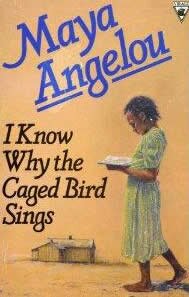 With the guidance of fellow novelist James Baldwin, Angelou did just that and began to work on her first book I Know Why the Caged Bird Sings an autobiographical text about her life as an African-American writer and poet and her transition from victim to a capable, free young woman.
With the guidance of fellow novelist James Baldwin, Angelou did just that and began to work on her first book I Know Why the Caged Bird Sings an autobiographical text about her life as an African-American writer and poet and her transition from victim to a capable, free young woman.
The book was published in 1970 and was nominated for a National Book Award. It remained on the New York Times best seller list for two years and has since been used in education for its graphic depictions of rape and racism.
After caged bird, she released over thirty different texts including poetry, non-fiction and fiction works. She has written several autobiographies and appeared in television and films regarding racial issues such as Roots, Poetic Justice and the Black Candle. Her scrip for the 1972 film Georgia, Georgia was the first script to be filmed and by an African American and was nominated for a Pulitzer Prize.
Since her success, Angelou has served on two presidential committees, broadcast a live reading of her poem “On the Pulse of Morning” at President Clinton’s inauguration and received over 50 honorary degrees. Her work has made giant leaps in the journey of abolishing racial discrimination and continues to inspire generations of readers alike.
Lessons of Today from Maya Angelou
1) Life Is What You Make It…
 The following words are from one of Maya Angelou’s many speeches. The words were actually the very reason I decided to write this post today, because they inspired and motivated me, more than any other speech has in a long time.
The following words are from one of Maya Angelou’s many speeches. The words were actually the very reason I decided to write this post today, because they inspired and motivated me, more than any other speech has in a long time.
So I thought for this first lesson, I’d simply share the extract and let you make your own conclusions as to what I mean by; life is what you make it.
“I’ve learned that no matter what happens, or how bad it seems today, life does go on, and it will be better tomorrow. I’ve learned that you can tell a lot about a person by the way he/she handles these three things: a rainy day, lost luggage, and tangled Christmas tree lights.
I’ve learned that regardless of your relationship with your parents, you’ll miss them when they’re gone from your life. I’ve learned that making a living is not the same thing as making a life. I’ve learned that life sometimes gives you a second chance. I’ve learned that you shouldn’t go through life with a catcher’s mitt on both hands; you need to be able to throw some things back.
I’ve learned that whenever I decide something with an open heart, I usually make the right decision. I’ve learned that even when I have pains, I don’t have to be one. I’ve learned that every day you should reach out and touch someone. People love a warm hug, or just a friendly pat on the back.
I’ve learned that I still have a lot to learn. I’ve learned that people will forget what you said, people will forget what you did, but people will never forget how you made them feel.”
2) Variety & Exploration are Key to the Creator…
In my opinion, Maya Angelou’s work was as successful as it was, because there was nothing like it at the time and there is nothing like it today. And the reason it’s so unique is because she accepted herself as the voice behind the work she was doing.
And she understood that her abuse and discrimination could be used, not as an excuse not to work, but an excuse to work just little bit harder and they became the most dominant themes in her literary and drama pieces.
But before settling down to work, Angelou ensured she had explored the world around her so that by the time Caged Bird came to mind she had integrated the multiple facets, experiences and skills she had explored in her younger years in her mind. She knew what she wanted communicate before she put a pen to paper. And what she wanted to communicate was her honesty and her beliefs.
To channel this in your own work isn’t easy. It requires a great understanding of the world and what makes you unique, but in doing so your projects will be much more meaningful and bring something unique and valuable to the people on the other side.
So before starting your next project, whether that’s a poem, a piece of art, a company, a website, consider what experiences and skills are unique to you that you can integrate into your creation. And ensure that, in between ideas, you are considering
Every event and everyone you come into contact with as an opportunity to live an eventful life that will contribution to your future calling. Whether that person is an orator like Martin Luther King or a friend of a friend. You never know what will inspire you, until you let it inspire you.
3) Live with Passion…
Maya Angelou is living proof that life is not about sunshine and smiles. Before she even hit her teenager years she was separated from her parents, exposed to divorce and left facing racial discrimination and sexual abuse alone.
But despite all this, she did not give up on her dream. She put her heart into everything she did and did not use her past as an excuse when things went wrong.
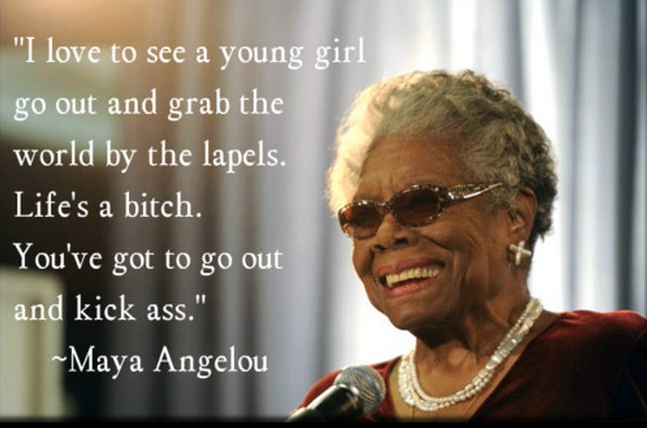 What we can learn from this is that you should never be afraid to strike out on your own. You should never be afraid to do something, if you love doing it. And you should always be the cause and not the effect of a change you want to see happening.
What we can learn from this is that you should never be afraid to strike out on your own. You should never be afraid to do something, if you love doing it. And you should always be the cause and not the effect of a change you want to see happening.
Maya Angelou felt the wraith of racism at a time when society would do anything to put her down. In response she became the first African American conductor and film director.
She spoke out against the struggles she and many other black people like her was facing. And she used the talents she had to make a difference. And what this proves is that true success, is not in the awards of the money or the fame. True success living a life that makes a change to the world around you – big or small – and inspires you to make the most of who you are as a unique individual with something to say and something to create.
Wrote by Aimee Hall
